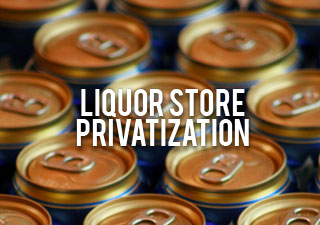Media
Privatizing State Liquor Stores is a Real Possibility
 After years of discussion, it appears the tides have finally turned in favor of privatizing Pennsylvania’s liquor stores. With a newly GOP controlled legislature, support for the policy is widespread.
After years of discussion, it appears the tides have finally turned in favor of privatizing Pennsylvania’s liquor stores. With a newly GOP controlled legislature, support for the policy is widespread.
Rep. Mike Turzai, the new Pennsylvania House Majority Leader, earlier this year introduced a bill to privatize wine and spirit sales in the state, but faced strong opposition from the Rendell administration. Now the effort has the support of Governor-elect Corbett, and Pennsylvania Senate majority leader Dominic Pileggi has said it’s moving “to the top of the agenda.”
Opposition still exists, though their arguments ignore reality. For instance, the Reason Foundation explains that the New York Times argument that privatizing state liquor stores will cost too many government jobs, doesn’t hold water:
Private businesses that sell wine and liquor do employ people, by the way. But even if they were operated by robots, how seriously can we take the argument that unnecessary government jobs should not be eliminated because then there will be fewer unnecessary government jobs? And if Corbett decided to preserve the state stores and cover the deficit by raising taxes, wouldn’t that decision also have an impact on employment? Or is it only government-directed money that creates jobs?
Rep. Turzai’s bill to privatize state liquor stores would generate an estimated one-time influx of $2 billion and hundreds of millions annually through revenues from an alcohol gallonage tax, sales taxes, and corporate taxes. This would be a major step towards balancing the Pennsylvania state budget and reducing the size of government.